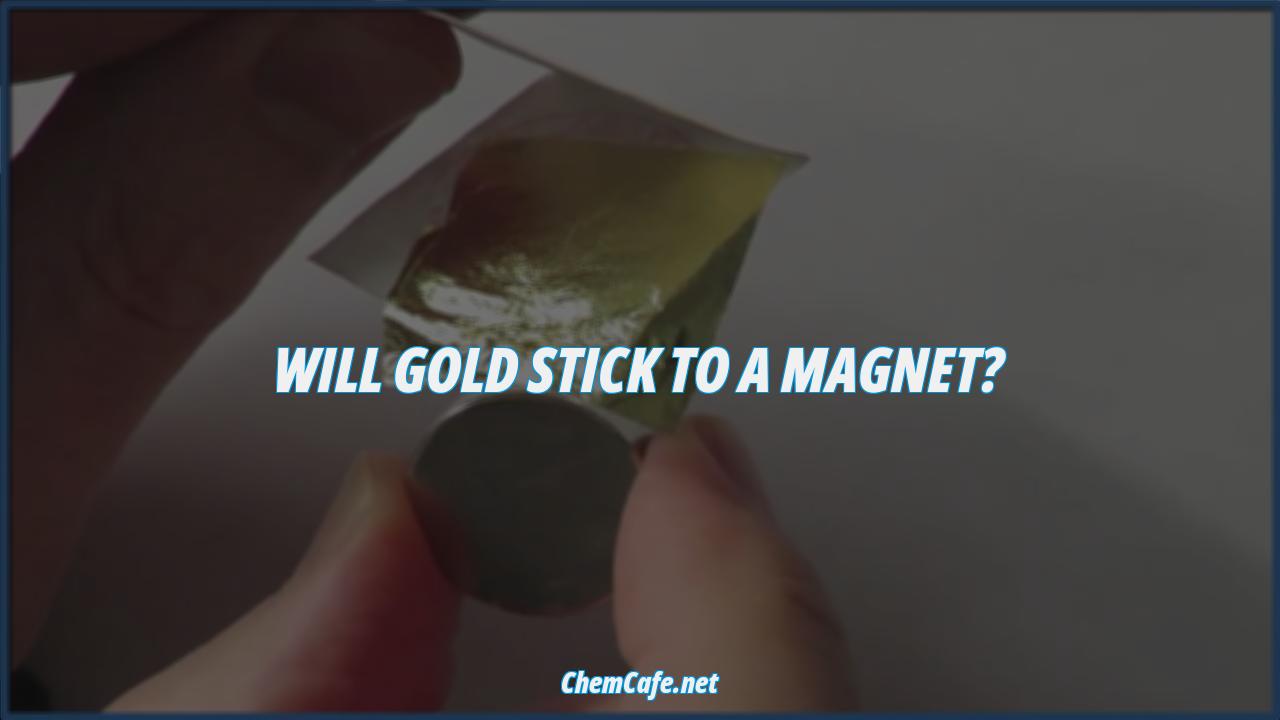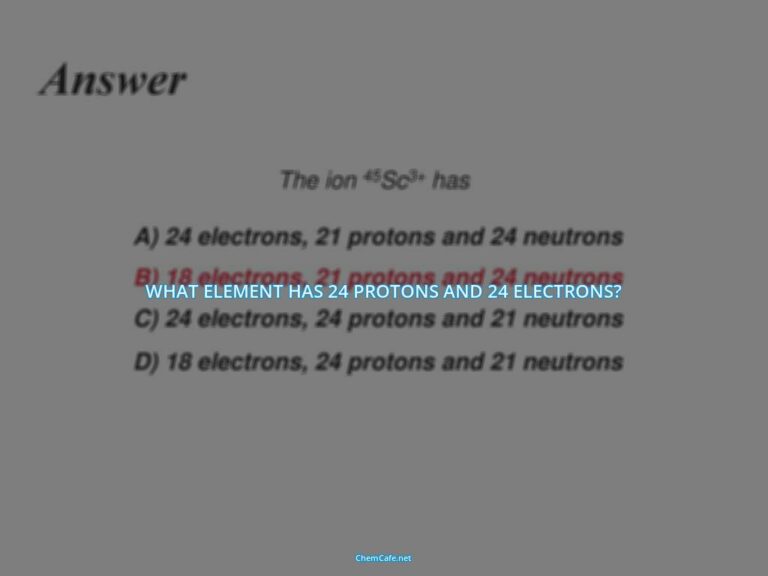When it comes to precious metals, gold is one of the most sought-after and valuable in the world. Whether you are in the market for a new piece of jewelry or looking for an investment, you want to be sure that you are getting the real thing. But how can you be sure that the gold you are buying is genuine? The answer is simple: use a magnet.
When you run a magnet over gold, you can determine whether or not it is real. If the gold is attracted to the magnet, then it is not pure gold and may even be fake. This is because real gold is not magnetic and will not be attracted to a magnet, no matter how powerful it is.
This is why it is important to know whether or not gold sticks to a magnet. So, does gold stick to a magnet? The answer is no. Gold is classified as diamagnetic, meaning that it is magnetically inert. This means that it will not be attracted to a magnet, and it cannot be magnetized by applying an electrical current to it.
So if you want to check the authenticity of gold, you can use a magnet. With your hand, move the magnet close to the surface of the gold until it is almost touching. If the gold is attracted to the magnet and pulls toward it in any way, you will know that there are traces of other metals in the gold and it is not real.
The same is true for 24k gold. 24k gold is pure gold and is not magnetic. However, gold alloys that contain iron, cobalt, or nickel can be magnetic. It is not the gold that is creating the magnetism, it is the other metals in the composition that are magnetic.
We hope that this article has answered the question of whether or not gold sticks to a magnet. Remember, if a magnet sticks to your gold jewelry, it may not be real. To ensure that you are getting the genuine article, it is best to buy from a reputable dealer.
Will gold stick to a magnet?
Gold is a precious metal that has been used for centuries for its beauty and value. But did you know that gold is not magnetic? If your jewelry sticks to the magnet, it may be fake or not pure gold. This is because real gold is not magnetic at all, and even with a strong magnet it will not be attracted.
Does 9 Carat Gold Stick to a Magnet?
When it comes to 9 carat gold, the answer is still the same – no, it will not stick to a magnet. Scientifically, gold is classed as diamagnetic, or magnetically inert. This means that it will not be attracted by a magnet, and cannot be turned into a magnet by applying an electrical current to it.
Testing if Gold is Real or Fake
If you’re wondering if your gold is real or fake, you can perform a simple test at home to see if it sticks to a magnet. With your hand, move the magnet close to the surface of the gold until it is almost touching. If the gold is attracted to the magnet and pulls toward it in any way, you will know that there are traces of other metals in the gold and it is not real.
You can see how gold reacts to a magnet for yourself in the following video: Is Gold Jewelry Magnetic?
Why Can Some Gold Be Magnetic?
As we have mentioned above, pure gold is not magnetic. Therefore, 24-karat gold jewelry will not be attracted to magnets. On the other hand, gold alloys that contain iron, cobalt, or nickel can be magnetic. It is not the gold that is creating magnetism. The magnet attracts the other magnetic metal mixed in the composition, i.e. iron or nickel.
In conclusion, real gold will not be attracted to a magnet. If you have a piece of jewelry that is attracted to a magnet, it is likely not pure gold and may contain traces of other metals. If you are concerned about whether your gold is real or not, it is best to take it to a certified jeweler for testing.
Does real gold stick to magnet?
If you’ve ever wondered if your gold jewelry is real, you can find out by using a magnet. Real gold is not magnetic, so if your jewelry sticks to the magnet, it may be fake or not pure gold.
What is the science behind real gold not sticking to a magnet?
Scientifically, gold is classed as diamagnetic, or magnetically inert. This means that it will not be attracted by a magnet, and cannot be turned into a magnet by applying an electrical current to it. This is why real gold won’t stick to a magnet.
Can I use a magnet to test if my gold is real?
Yes, you can use a magnet to test if your gold is real. With your hand, move the magnet close to the surface of the gold until it is almost touching. If the gold is attracted to the magnet and pulls toward it in any way, you will know that there are traces of other metals in the gold and it is not real. On the other hand, if it’s real gold it will not stick to the magnet. (Fun fact: Real gold is not magnetic.)
What about 9 carat gold?
Nine carat gold is made up of 37.5% pure gold, and the rest is made up of other metals such as silver, copper, and zinc. This means that nine carat gold will still not be attracted to a magnet, as the majority of it is still made up of pure gold.
What if my gold is attracted to the magnet?
If your gold is attracted to the magnet, it is likely not real gold. Fake gold, on the other hand, will stick to the magnet. If that necklace leaps to the magnet, your significant other has some explaining to do.
What other ways can I tell if my gold is real?
If you’re still not sure if your gold is real, there are other ways to tell. You can take it to a certified jeweler or have it tested with acid. You can also buy a gold testing kit online that will allow you to test the metal yourself.
Real gold is not magnetic, so if your jewelry sticks to a magnet, it is likely not real gold. For more tips like this, click here to pre-order Jeff’s new book Rossen To The Rescue. Knowing the facts about real gold can help you make sure you’re getting the real deal when shopping for gold jewelry.
Does gold stick to magnet?
Gold is one of the most precious metals on the planet, and it is also a popular choice for jewelry. But is gold magnetic? The answer is no, pure gold is not magnetic. However, when other metals are mixed with gold, it can become magnetic.
Why is gold not magnetic?
Pure gold is not magnetic because it is not made up of any magnetic metals. Gold is a pure element and its atomic structure is not affected by a magnetic field. As such, it does not have the ability to be attracted to a magnet.
What metals make gold magnetic?
Gold alloys that contain iron, cobalt, or nickel can be magnetic. It is not the gold that is creating magnetism. The magnet attracts the other magnetic metal mixed in the composition, i.e. iron or nickel. The magnetic properties of the alloy depend on the amount of magnetic metal that is mixed with the gold.
Types of magnetism
We can form three categories of materials based on their magnetism:
- Ferromagnetism – it is a basic mechanism where some materials form permanent magnets or are attracted to magnets, with iron being a good example of this.
- Diamagnetism – this is when some materials or metals will repel when you apply an external magnetic field
- Paramagnetic – these materials tend to be weakly attracted when you apply external magnetic fields, as they create induced magnetic fields in the direction of the external magnet.
Testing Gold with a Magnet
Gold tends to have both paramagnetic and diamagnetic properties, so the effects cancel each other out and cause the gold to remain inert when you apply a magnet. The only way to check if gold is real is to test it with a magnet. With your hand, move the magnet close to the surface of the gold until it is almost touching. If the gold is attracted to the magnet and pulls toward it in any way, you will know that there are traces of other metals in the gold and it is not real.
In conclusion, pure gold is not magnetic. 24-karat gold jewelry will not be attracted to magnets. If the gold is attracted to the magnet, it is not real gold. To determine if your gold is real, you can use a magnet to test it.
Does 24k gold stick to a magnet?
Gold is a precious metal that has been used in jewelry and coins for centuries. It’s highly sought after and is often alloyed with other metals to create more durable and cost-effective pieces. But one of the more interesting properties of gold is whether or not it is attracted to a magnet.
Is 24k Gold Magnetic?
In their pure, natural forms, gold, silver, aluminum, copper, brass, and lead are not magnetic. This is because they are all weak metals. However, when these metals are alloyed with other metals, they can become magnetic. For example, when gold is alloyed with iron and nickel, it can become magnetic.
Does 24k Gold Stick to a Magnet?
If it’s real gold it will not stick to the magnet. (Fun fact: Real gold is not magnetic.)Fake gold, on the other hand, will stick to the magnet. This is because fake gold is often created using metals that are magnetic. Therefore, the best way to test if your gold is real or fake is to use a magnet. If it sticks to the magnet, it is not real gold.
Is 24k Gold a Magnetic Metal?
The answer is no. 24-karat gold jewelry will not be attracted to magnets. This is because 24K gold is made up of 99.9% pure gold and is not alloyed with any other metals. As a result, it is not magnetic and will not be attracted to a magnet.
Does a Magnet Stick to 14k Gold?
Gold, in its pure form, does not promote magnetism. If a specific item containing gold sticks to a magnet, it is possible that the metal alloyed with gold is magnetic and causing the attraction. 14k indicates that the alloy has approximately 58.3% of gold, which is low compared to 18k or 24k, and the rest of the composition consists of another metal, which may be magnetic.
Does a Magnet Stick to 18k Gold?
Real gold will not attract a magnet. To test if 18k gold is real, hold it next to a magnet. If the 18k gold is not attracted to the magnet, it is most likely real. However, if the 18k gold is attracted to the magnet, it could be fake. To be sure, you should take the item to a professional jeweler for authentication.
In conclusion, real 24k gold jewelry will not stick to a magnet. While fake gold may be attracted to a magnet, if it is not alloyed with any other metals, it will not be attracted to a magnet. Therefore, you can use a magnet to test if your gold is real or fake. If it sticks to the magnet, it is not real gold.
Can a magnet Touch gold?
In the world of precious metals, gold is one of the most sought after. It has been used for centuries as a form of currency, a symbol of wealth, and a sign of luxury. With its increasing popularity, it’s no wonder that so many people are curious about whether a magnet can touch gold or not.
The answer to this question is both yes and no. Gold is not magnetic; therefore, it cannot be attracted to a magnet. However, if the gold contains traces of other metals, then it may be attracted to a magnet.
How to Test if Gold is Attracted to a Magnet
If you want to test whether or not your jewelry is real gold, you can use a simple magnet test. With your hand, move the magnet close to the surface of the gold until it is almost touching. If the gold is attracted to the magnet and pulls toward it in any way, you will know that there are traces of other metals in the gold and it is not real.
Will 9 Carat Gold Stick to a Magnet?
When it comes to gold, the purity of the metal is what matters the most. Pure gold is not magnetic, while gold that contains other metals may be attracted to a magnet depending on the amount of other metals present. Gold that is 9 carat or lower usually contains other metals, so it may be attracted to a magnet.
Scientifically, gold is classed as diamagnetic, or magnetically inert. This means that it will not be attracted by a magnet, and cannot be turned into a magnet by applying an electrical current to it.
Testing gold with a magnet is a simple and straightforward way to determine whether or not your jewelry is real gold. If your jewelry sticks to the magnet, it may be fake or not pure gold — this is because real gold is not magnetic at all, and even with a strong magnet it will not be attracted. Alternatively, if the gold does not move toward the magnet at all in reaction to it, you will be able to have more confidence that it really is pure gold.
No matter what type of gold you have, it is always best to take it to a professional to have it appraised. This is the only way to ensure that your jewelry is real and that you are getting your money’s worth. Gold is a valuable commodity, so make sure you are investing in the real thing.
Does silver stick to a magnet?
Silver is not noticeably magnetic. It exhibits only weak magnetic effects, unlike iron, nickel, cobalt, and the like. However, silver can interact with magnets if they are moving. This is because the electric current has its own magnetic field which interacts with the moving magnet.
Does real silver stick to a magnet?
Real silver, in its pure, natural form, is not magnetic. However, if silver is alloyed with iron or steel, it can become magnetic. If you had a silver pipe, you could drop a magnet down it and it would fall very slowly. This also works with aluminum and copper.
Is silver magnetic?
Silver is not noticeably magnetic, and only iron, nickel, cobalt, gadolinium, neodymium and samarium are magnetic in our everyday lives. Knowing that silver isn’t magnetic can be useful when it comes to spotting fake silver. If someone is trying to sell silver jewelry or coins, it’s not a bad idea to test them with a magnet.
What are the other properties of silver?
Silver is a highly conductive metal and is used in electrical components and circuits. It is also one of the most reflective metals on earth, making it ideal for use in mirrors and other reflective surfaces. Silver is also one of the strongest metals, and can be used in jewelry and coins.
What are the possible uses of silver?
Silver can be used for a variety of purposes, including electrical components, jewelry, coins, reflective surfaces, and even medical applications. Silver is an excellent conductor of heat and electricity, making it a great choice for electrical components. Silver can also be alloyed with other metals to create stronger, more magnetic alloys. Silver is also used in jewelry, coins, and reflective surfaces, such as mirrors. In addition, silver is also used in medical applications, such as wound dressings and anti-bacterial agents.
Silver is not noticeably magnetic in its pure, natural form, but can become magnetic if it is alloyed with iron or steel. This makes it useful for spotting fake silver, as well as for a variety of applications, including electrical components, jewelry, coins, reflective surfaces, and medical applications. Knowing that silver isn’t magnetic can help you spot fake silver, and can be a useful tool in many other areas.





Leave a Comment